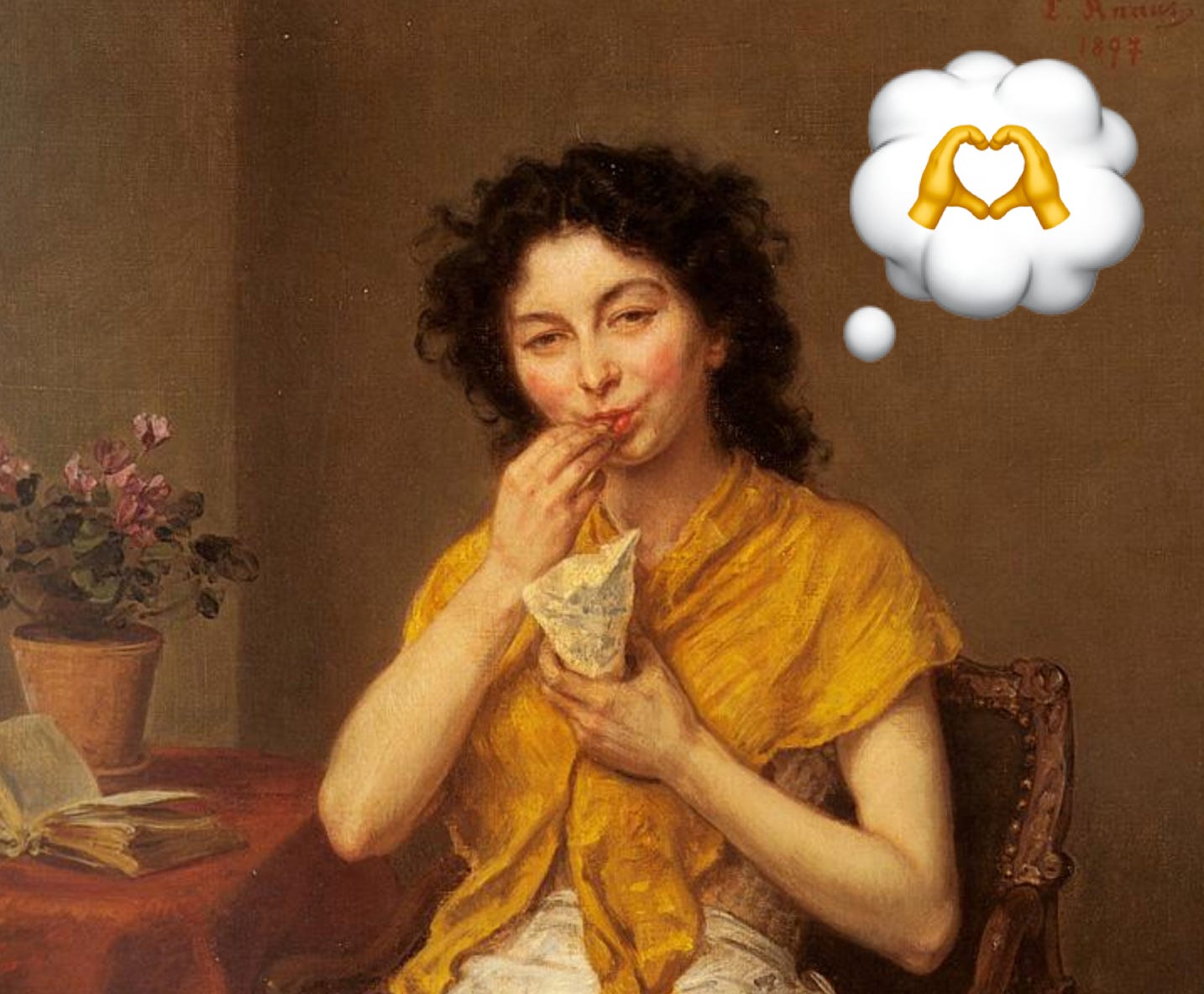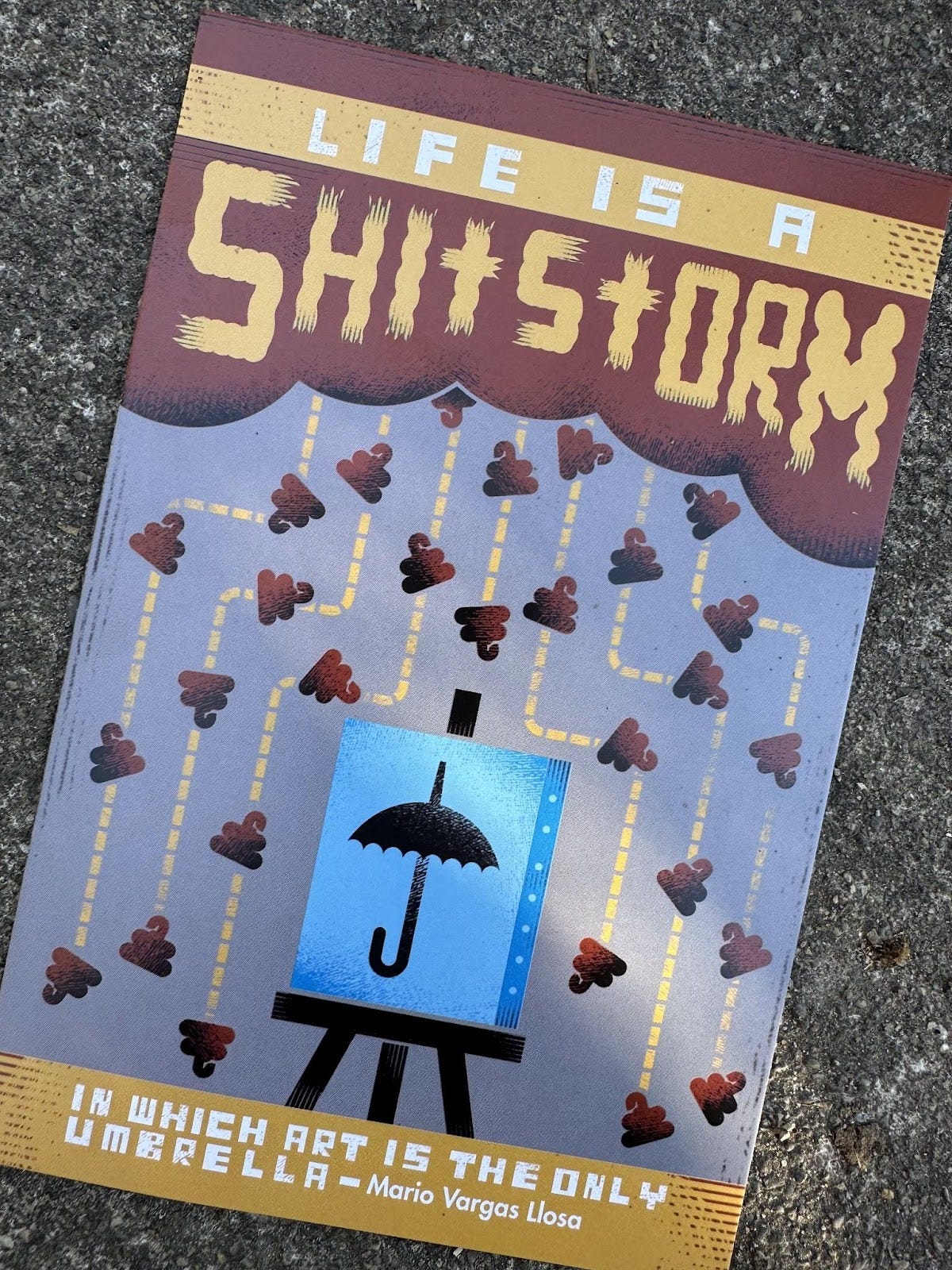The Wit’s Guide to Gluttony
Or, epicured moots

Does gluttony deserve to be called a sin? Surely we must allow grace for those who want to taste all of life, even at the risk of busting a gut. In her essay collection All Things Are Too Small, Becca Rothfeld argues passionately against shrinking our appetites. “I once saw a man in a restaurant finish his pasta, order the same dish again, eat it, then order and finish it a third time,” she writes. “His was the sanest response to his predicament, but he wouldn’t have had to grasp at such exorbitance if any plate available were big enough.” On a deep philosophical level, she approves.
“Gluttony is not a secret vice.”
— Orson Welles
If we say the Triple Tortellini man was a gourmand, not a glutton, does that make things better? Nah. It’s a distinction without a difference, like saying you’re a traveller and not a tourist: Only of interest to the delusional subject, because everyone else has already made up their minds. Just as Dylan Thomas said an alcoholic is someone you don’t like who drinks as much as you do (or, terrifyingly, he did), so too a glutton is an unloved lover of food.
“Gluttony is an emotional escape, a sign something is eating us.”
— Peter De Vries
Then what’s the difference between a gourmand and a gourmet? William Safire claimed it was all in the postprandial behaviour: After a meal, “an epicure gives a thin smile of satisfaction; a gastronome, burping into his napkin, praises the food in a magazine; a gourmet, repressing his burp, criticizes the food in the same magazine; a gourmand belches happily and tells everybody where he ate; a glutton embraces the white porcelain altar, or, more plainly, he barfs.”
“Gluttony is a great fault; but we do not necessarily dislike a glutton. We only dislike the glutton when he becomes a gourmet — that is, we only dislike him when he not only wants the best for himself, but knows what is best for other people.”
— G.K. Chesterton
There have been eras in history when eating to excess was fashionable. In eighteenth century London, Hester Thrale observed that “gluttony is so much the favourite vice of this age that I heard today of a waistcoat marked thus, in the manner of a barometer: Full, Very Full, Bursting—Apoplexy, Sudden Death.”
“A big man is always accused of gluttony, whereas a wizened or osseous man can eat like a refugee at every meal, and no one ever notices his greed.”
— Robertson Davies
And in her essay On Gluttony, M.F.K. Fisher lamented that “this country will never again see so many fat, rich men as were prevalent at the end of the last century, copper kings and railroad millionaires and suchlike literally stuffing themselves to death.” Gluttons in her time did their gorging in private; in our time, they chase those feasts with Ozempic so we need never know how they filled their oddly hollow faces.
“If a person who indulges in gluttony is a glutton, and a person who commits a felony is a felon, then God is an iron.”
— Spider Robinson
The good news is that all of this is moot: The Catholic scholar Thomas Aquinas identified five ways that gluttony can manifest itself: eating too soon (praepropere), eating too luxuriously (laute), eating too much (nimis), eating too eagerly (ardenter), and eating too daintily (studiose). If you’ve ever spoiled your appetite, filled up on bread, over ordered, splurged, or held back, you’re a glutton. So own it! Sit up straight, flag down the waiter, and order that fourth plate of pasta.
Mario Vargas Llosa died this week at the age of 89, and despite the fact that the novelist won the Nobel Prize for Literature, Google’s knowledge panel identifies him as a Peruvian politician. You make one ill-fated run for the presidency and no one cares that you invented magic realism? A fact which only makes the lovely Riposte Card drawn from his work by Matthew Daley more relevant. Upgrade to a paid subscription and I’ll send you a few in the mail.
“I never see an egg brought on my table but I feel penetrated with the wonderful change it would have undergone but for my gluttony; it might have been a gentle useful hen, leading her chickens with a care and vigilance which speaks shame to many women.”
— St John de Crévècoeur
I love how the above line first indulges in guilt for eating a single egg and then casually insults all mothers for not being poultry. We’re on a good thing with No. 3 of the Seven Deadly Sins; which one’s next?
That was Get Wit Quick Issue No. 303, which I honestly could have stuffed with twice as much stuff if I weren’t so darn dainty. The newsletter’s mascot is a magpie named Magnus after the magician in Robertson Davies’ Deptford Trilogy. The title font is Vulf Sans, the official typeface of the band Vulfpeck, which was modelled after IBM Selectric typewriters. The book was Elements of Wit: Mastering The Art of Being Interesting. Tap the ❤️ below for more.





